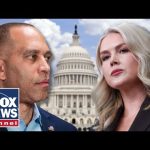In a surprising twist of political positions, a notable advocate for police reforms appears to be having a change of heart. Once a staunch critic of law enforcement, he now proclaims a desire to collaborate with police officers. It’s an interesting shift in rhetoric from someone who previously advocated for significant changes to policing. His public apology to the police signals an attempt to soften his earlier, harsh stance, but with a nuanced twist, he maintains that while his language may have been regrettable, the fundamental beliefs behind the criticisms remain unchanged.
The American public is no stranger to politicians flip-flopping on core issues, but this situation seems to be a classic case of saying one thing while meaning another. By expressing regret over his prior choice of words, yet holding firm to the original sentiment, this politician is trying to walk a tightrope. It’s an impressive attempt to balance the support from his left-leaning base with the growing support for law enforcement from the broader public. It leaves one wondering whether this is a genuine transformation or a carefully calculated political maneuver.
At the heart of this complexity is a broader debate about taxation and economic policy. The same figure who has pivoted on police funding is also advocating for tax increases on the wealthy to bankroll an ambitious array of public services. These proposals include free transit, suggesting an ever-expanding role of government in daily life. However, this approach relies on the assumption that New York’s affluent will simply accommodate these hikes without altering their behaviors or addresses—a questionable gamble given the city’s current real estate dynamics.
In the background, there is a palpable tension between those who advocate for more government intervention and those who argue it will ultimately chase away the very taxpayers needed to fund such programs. Recent trends show a notable exodus of affluent individuals from high-tax areas like New York City to more tax-friendly locales. This raises a critical question: if the wealthy leave en masse, who will foot the bill for these expansive programs? History warns us of political leaders who believed they could continuously dip into the pockets of a seemingly limitless wealthy class, only to find the pool of contributors drying up.
Yet, perhaps the most telling aspect of this politician’s journey is the all-too-common outcome seen in regimes with heavy government intervention. Often leaders promise improvements in quality of life funded by redistributing wealth, only for reality to crush those aspirations. The pattern of offering special deals to certain wealthy individuals to gain support reveals a dangerous entanglement of politics and favoritism while neglecting the broader economic health and individual freedoms. Those who remain optimistic about such policies might find themselves longing for the freedoms they took for granted once the consequences of these economic policies come to fruition.
In summary, this politician’s narrative weaves a complex tale of ideological shifts and economic ambitions, while conveying the age-old tension between promises of equity and the harsh realities of economic flight. As cities and states contemplate such policies, they must consider not only their immediate popularity but their long-term viability. The allure of short-term gains must not overshadow the enduring lessons of history, lest we find ourselves with ambitious dreams, but a starving reality.




